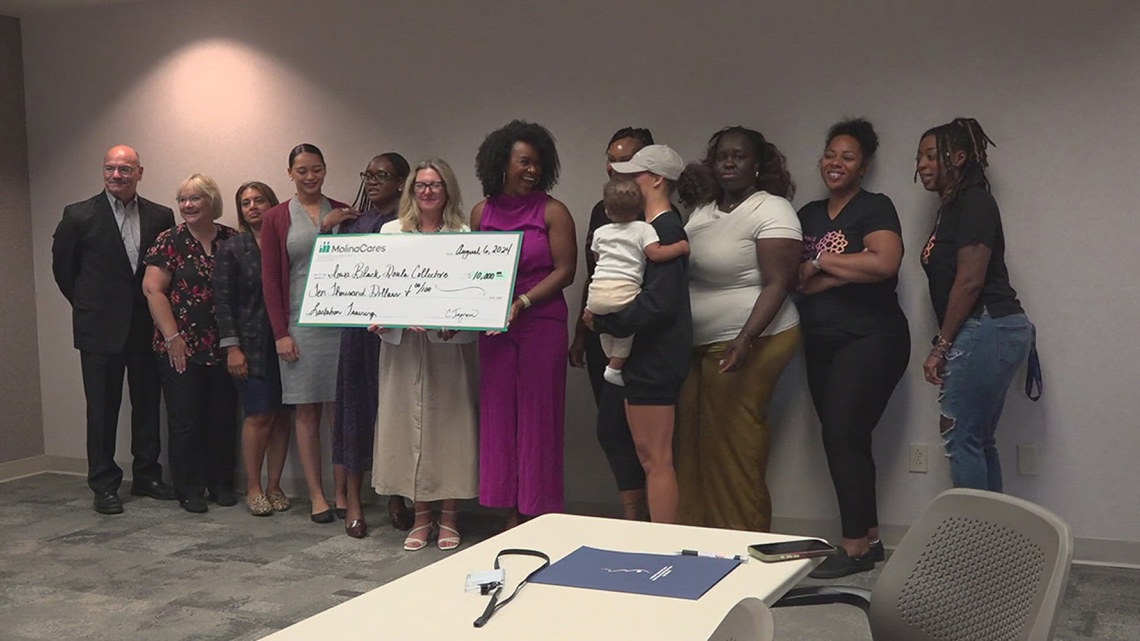
Molina Healthcare of Iowa presented the check Tuesday in Davenport. It will help fund certified lactation consultant training for doulas in the collective.
DAVENPORT, Iowa — A statewide organization focused on improving reproductive health outcomes for Black individuals in Iowa received a significant donation on Tuesday, Aug. 6 to help continue its mission.
During an event in Davenport, Molina Healthcare of Iowa presented a $10,000 grant to the Iowa Black Doula Collective. It will help fund certified lactation consultant training for doulas in the collective.
The Iowa Black Doula Collective (IBDC) was formed back in 2020 to “address the critical needs of Black birthing people in the area of reproductive health,” according to its website. Its mission is to support and train doulas that will advocate for individuals of color throughout their pregnancy.
According to the CDC, Black women are two to three times more likely to die from pregnancy-related causes than white women. In Iowa, that rate is even higher. In 2021, only 69% of Black mothers in Iowa were breastfeeding at the time of hospital discharge compared to 84% of white mothers. According to Molina and IBDC, breastfeeding can reduce the risk of asthma, obesity, Type 1 diabetes, ear infections and other maladies. It can also lower the mother’s risk of high blood pressure, Type 2 diabetes, ovarian and breast cancer.
Training to become a certified lactation counselor (CLC) can cost up to $1,000 per person. Executive Director and IBDC Co-Founder Ebonie Bailey said there’s just a handful of CLCs of color in Iowa but the training should help double that.
“It provides more access to families and that’s what we’re all about,” Bailey said. “Providing access, making sure families know their options. That’s really important to us. And support people on their breastfeeding journey.”
Just last week in Illinois, Gov. JB Pritzker signed the birth equity initiative into law that expands Medicaid coverage during and after pregnancy. The goal is to reduce reproductive healthcare disparities impacting Black women and other people of color.


